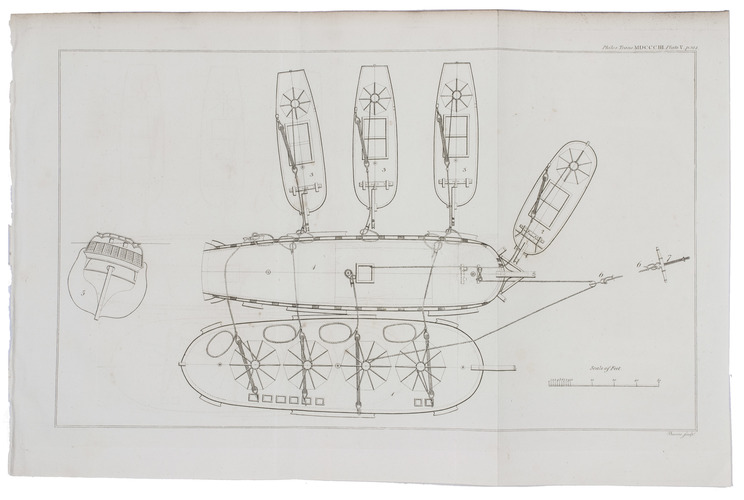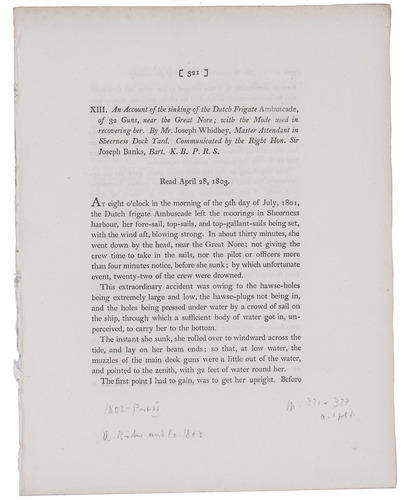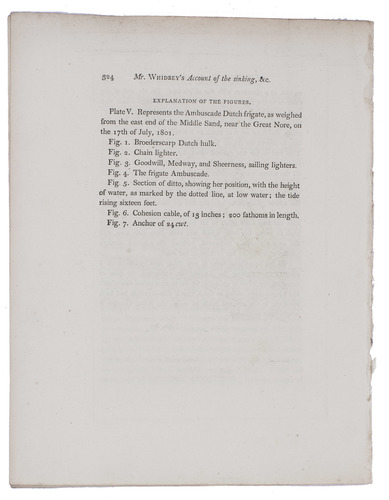WHIDBEY, Joseph.
An account of the sinking of the Dutch frigate Ambuscade, of 32 guns, near the Great Nore; with the mode used in recovering her... Communicated by the Right. Hon. Sir Joseph Banks, Bart. ...
[London, William Bulmer & Co], 1803. Large 4to (27.5 x 21.5 cm). With a folding engraved plate illustrating the account. Disbound. pp. 321-324.
€ 350
Extract from the Philosophical transactions of the Royal Society, relating the manner in which a sunken frigate was salvaged from the Nore near Sheerness. The 32-gun Dutch frigate Embuscade originally formed part of the Batavian squadron that surrendered to the British Navy during the Vlieter Incident of 1799. Embuscade was integrated into an Orangist Dutch squadron in British service and in 1801 converted into a floating battery. "In the morning of the 9th day of July, 1801, the Dutch frigate ... left the moorings in Sheerness harbour ... In about thirty minutes, she went down by the head, ... not giving the crew time to take in the sails, nor the pilot or officers more than four minutes notice, before she sunk; by which unfortunate event, twenty-two of the crew were drowned". In order to raise the ship, the Master Attendant at Sheeryard Docks, John Whidbey, cut away the masts to lighten the ship and get her upright. At low water, lines were laid through the ports and attached to the hulk Broederschap - a Dutch ship taken by the British at the Nieuwe Diep, two days before Embuscade - and four smaller ships. The lines were tightened at the next lower water and "at half-flood she floated". Although Whidbey stated that there wasn't "any thing new in the mode ... excepting the idea of removing the effect of cohesion", he was quickly promoted to the prestigious office of Master attendant at Woolwich after his paper was read out at the Royal Society by his friend Joseph Banks.
Joseph Whidbey was a British naval officer and engineer who served on the Vancouver Expedition (1791-1795), notably aboard HMS Discovery. He became a fellow of the Royal Society in 1805 and later submitted a paper on fossils found during construction of the Plymouth Breakwater, of which he was Acting Superintending Engineer.
Plate with a few spots, otherwise a very good copy. Cf. Grocott, Shipwrecks of the revolutionary & Napoleonic eras, p. 113.
Related Subjects:





